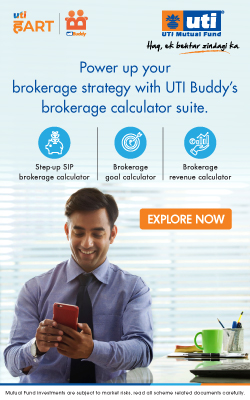Absolutely, no debate on that, feels Amit Trivedi of Karmayog Knowledge Academy. The IFA needs to transform his/her business model. The key to future success is to believe, communicate and demonstrate to your clients that you have only their best interests in mind and the fee that you ask for is well deserved. Read on…
 If William Shakespeare were an IFA operating out of India, he might have written the above line! In the last one year since the SEBI regulation on abolition of entry load on mutual funds, this debate on fees has started. With the abolition of entry loads, the distributor’s margins have come down. In order to thrive in the new regime, one has to seriously look at one’s practice as a businessperson would.
If William Shakespeare were an IFA operating out of India, he might have written the above line! In the last one year since the SEBI regulation on abolition of entry load on mutual funds, this debate on fees has started. With the abolition of entry loads, the distributor’s margins have come down. In order to thrive in the new regime, one has to seriously look at one’s practice as a businessperson would.
The entire business model needs to undergo a huge change now. Let us elaborate further. In order to drive the point home, we will start with the revenue structure for the intermediaries.
The intermediaries can have two sources of earnings when they deal with their clients; (i) commission paid by mutual fund companies and (ii) fee from clients.
When we discuss the issue of charging fee to clients, investment advisors get butterflies in the stomach. Many have put forward arguments like,
“If I charge, my client will move his business”
“No client will pay, not In India at least”
“Nobody has paid fees to a financial advisor so far”
Well, I can recall a similar situation when a decade back distributors were asking us about the entry loads in mutual funds when other investment products did not seem to be carrying any such costs. We were then making special presentations to investors explaining them what entry load is and how such transparency is better for them.
Life has come a full circle. Mutual funds have always remained the most transparent investment option for the investor ever since the mid-1990s.
So what should an investment advisor do? As mentioned earlier in the article, there is a need to seriously change the business model and move towards charging fee from the client. But why is that necessary? Simply because the times have changed and the logic put forward by the regulator seems to be very sensible. To understand the regulator’s logic, let us go back to the two revenue options, viz., commissions and fees. As mentioned, commission is paid to the distributor by the mutual fund company to sell its products to the investors. The investment advisor charges fees from the investor for the value provided.
Now, there are three parts of the value provided by the investment advisor / distributor to the investor, viz., advice, service and transaction facilitation. The commission paid by the mutual fund companies is linked to the business volume generated. The level of commission only takes the business volume in account, but does not consider whether the investor gets any advice or service. In fact, it is not possible for a mutual fund company to monitor what transpires between an advisor and a client. And hence, the SEBI regulation suggests that while the mutual fund company can still pay commission to the distributors to distribute their funds, let the investor decide and assess whether the advisor offers any advice and/or service. The fee has to be a function of the investor’s assessment of the advice and service.
Given this, it is imperative that the distributor now acts as an investor’s advisor and demonstrates to his client that the advisor has only the best interest of the investor in mind. It is a question of actually doing it and letting the investor know that.
Generally speaking, the value addition starts with advice followed by transaction with service being the final element. It is advice and service that the client values most. At the same time, transaction facilitation is also important. However smooth the transaction and regular the portfolio reports and other associated services, bad advice could be the single most powerful contributor to the investor’s nightmares.
What is this advice? Advice is nothing but understanding the needs of the investor and offering an investment plan to serve those needs. It involves a few steps: identification of needs, articulation of these needs, fulfillment of these needs through action points and regular review of the progress after the plan is implemented.
Yes, it is difficult and only rarely practiced. But then one has to make a beginning somewhere. I am convinced that any fair and reasonable human being will allow his/her well-wisher to make reasonable money. The ball is in the advisor’s court. It is up to the advisor to establish that you are your client’s well-wisher and what you are making is well deserved.
All the best in your journey in the new world!
The author is owner of Karmayog Knowledge Academy. He can be reached at amit@karmayog-knowledge.com.




